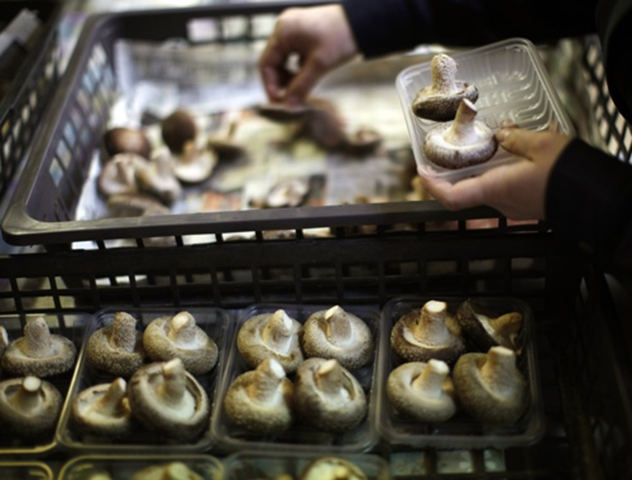Mushrooms join list of radiation threats to Japan food chain
By Naoko Fujimura, with assistance from Jae Hur in Tokyo; Editors: Jim McDonald, Paul Tighe
13 August 2011 Aug. 13 (Bloomberg) – Mushrooms are the latest addition to threats facing Japan’s food chain from radiation spewed by Tokyo Electric Power Co.’s Fukushima Dai-Ichi nuclear plant. Nameko mushrooms grown in the open air in Soma, a city about 40 kilometers (25 miles) north of the crippled plant, were found to contain nine times the legal limit of cesium, the local government said yesterday. Japan’s farm ministry asked growers in Fukushima prefecture to refrain from harvesting mushrooms off raw wood left outside, public broadcaster NHK said today. Japan is under pressure to enhance safety inspection of foods, as it has no centralized system for detecting radiation contamination. Authorities in Fukushima and neighboring prefectures are conducting spot checks on products in cooperation with local farmers. Half of Japan’s rice crop is grown within the radius of possible contamination from the nuclear plant damaged in the March 11 earthquake and tsunami, and farmers are awaiting the results of tests before harvesting begins this month. Radiation exceeding safety levels has been found in produce, tea, milk, fish and beef sourced as far as 360 kilometers from the nuclear plant. […] The forestry agency urged Fukushima prefecture to prevent shipments of any wood or charcoal that has been stored outdoors since the nuclear crisis, the Yomiuri newspaper said today. Jiji Press reported that the farm ministry ordered the local authorities to conduct tests on trees used for mushroom growing. […]
Mushrooms Join List of Radiation Threats to Japan’s Food Chain
